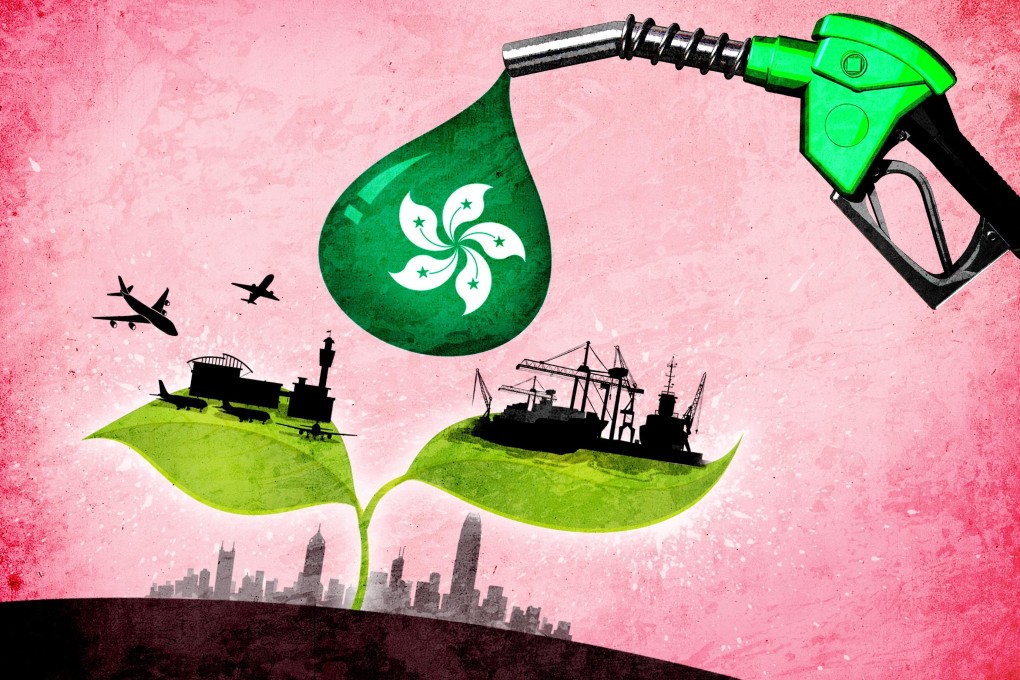Hong Kong must act fast to catch up with Shanghai, Shenzhen, Singapore in flying green
Hong Kong has to act fast if it wants to become a green fuel hub for the aviation and maritime sectors, as both Singapore and China are way ahead, analysts say

“As the global aviation sector has clear decarbonisation goals, as do many investors and finance providers, Hong Kong’s industry must act to enable SAF usage to mitigate climate transition risks, or risk losing competitiveness,” said Merlin Lao, head of policy and research at the Business Environment Council (BEC), a non-governmental organisation.

From January 1, most ships sailing to the European Union have to prove that they have taken measures to reduce the greenhouse gas intensity of fuels by 2 per cent. This will rise to 80 per cent by 2050.
“Increasingly, clean fuel will be a must for vessels sailing between East Asia and Europe,” said Hing Chao, chairman of the Hong Kong Chamber of Shipping and executive chairman of Wah Kwong Maritime Transport.